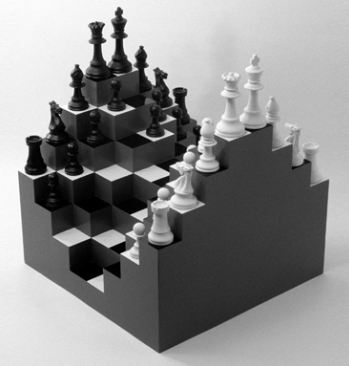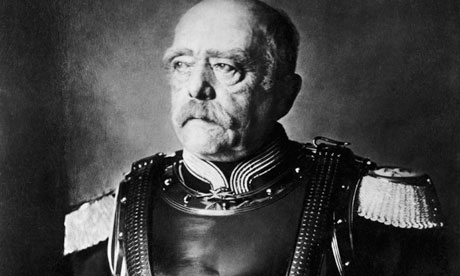More on Strategy
Friday, March 30th, 2012Two posts worth your attention:
Gulliver at Inkspots continues the strategy convo between myself and Jason Fritz with a major post of extended commentary:
Let’s just be up front with each other: this is a really long rant about strategy
….I’m willing to concede that the line between civilian and military reponsibilities in strategy formation and the associated operational planning is a blurry and unstable one, and that what I’ve laid out as the normative standard isn’t always the way things play out in reality. You certainly shouldn’t take anything I’ve written above as an exculpatory argument for our elected officials. But more on this a bit later.
As for our man Carl: Jason’s choice of Clausewitz quote is simultaneously interesting and surprising to me. Committed students of the sage will recognize it from perhaps the most remarked-upon pages of On War: Book Eight, Chapter 6B. (If it were an episode of “Friends,” they’d call it The One With the Politics By Other Means.) The language Jason excerpted is from the 19th-century Graham translation; just for the purpose of clarity, let’s look at the somewhat more fluent Paret/Howard version:
In making use of war, policy evades all rigorous conclusions proceeding from the nature of war, bothers little about ultimate possibilities, and concerns itself only with immediate probabilities. Although this introduces a high degree of uncertainty into the whole business, turning it into a kind of game, each government is confident that it can outdo its opponent in skill and acumen. (606)This is a pretty difficult passage (especially as I present it here, mostly out of context) but I take it to mean that governments are little interested in ruminations on war’s escalatory momentum in the direction of its absolute form, but rather in how violence may be used to achieve concrete political goals. But the paradoxical reality is that addition of violence to politics – violence that is fueled in part by hatred and enmity, violence that is fundamental to war’s nature and sets it off as distinct from all other human activity – actually re-shapes the character of the political contest. War’s essential violence pressures the political contest to take on the character of a duel or a sporting event; without the harness of policy, war risks becoming a self-contained competition conducted according to its own rules, one where victory is not the mere accomplishment of political objectives but rather a revision of the relationship between the two competitors such that the victor is free to enact his preferences.
The “high degree of uncertainty” that Clausewitz concedes is introduced “into the whole business” is produced by divergence between the things we do in war and the things they are meant to achieve. In limited war, our actions are conceived as violent but discrete and purposive acts of policy, while as war moves toward its absolute form our actions are increasingly divorced from discrete political objectives short of the destruction of our enemy. To put it simply, shit gets crazy in war. [….]
In a different strategic venue, Matt Armstrong at MountainRunner analyzes The President’s National Framework for Strategic Communication (and Public Diplomacy) for 2012 :
It should be common knowledge that the “information consequences of policy ought always be taken into account, and the information man ought always to be consulted. This statement, from 1951, is reflected in Eisenhower’s dictum of the next year that “everything we say, everything we do, and everything we fail to say or do will have its impact in other lands.” It was understood then that words and deeds needed more than just synchronization: public opinion could be leveraged to support and further the execution of foreign policy.
What was true then is more so in a modern communication environment of empowerment. The interconnected systems of Now Media, spanning offline and online mediums, democratizes influence, and undermines traditional models of identity and allegiance as demands on assimilation fade as “hyphens” become commas. What emerges is a new marketplace for loyalty that bypasses traditional barriers of time, geography, authority, hierarchy, culture, and language. Information flows much faster; at times it is instantaneous, decreasing the time allowed to digest and comprehend the information, let alone respond to it. Further, information is now persistent, allowing for time-shifted consumption and reuse, for ill or for good. People too can travel the globe with greater ease and increased speed.
It is in this evolving environment that the President issued an updated “National Framework for Strategic Communication” for 2012 (3.8mb PDF, note: the PDF has been fixed and should be once again visible to all). This report updates the 2010 report issued last March that was little more than a narrative on how the Government was organized for strategic communication. The report is required under the National Defense Authorization Act of 2009.
Some highlights from the 2012 Framework: [….]






